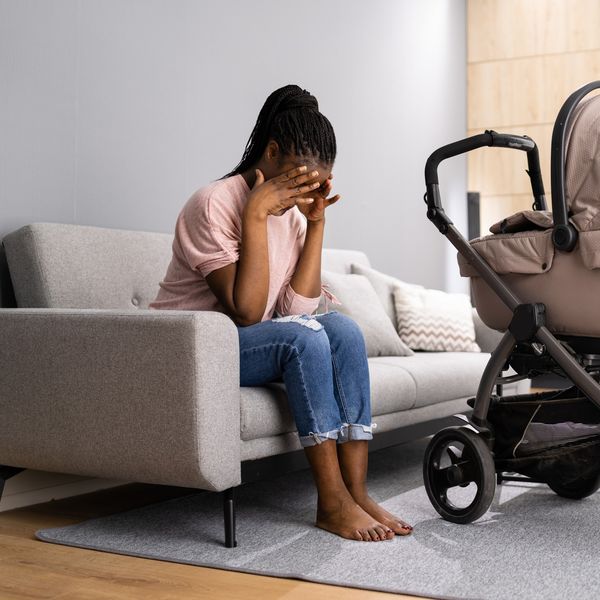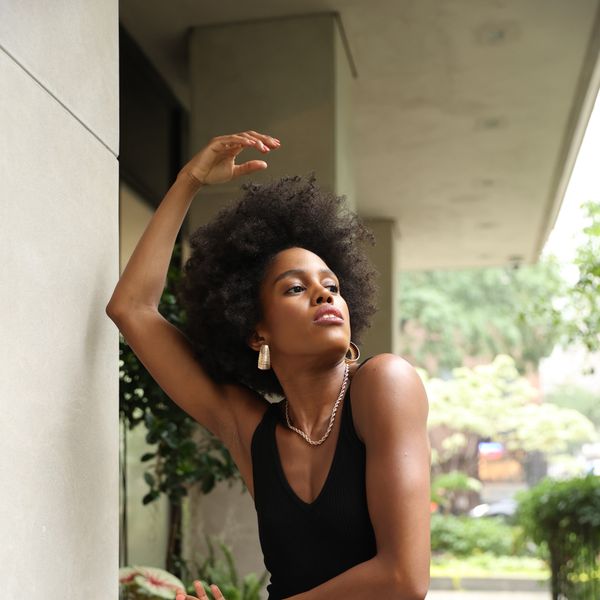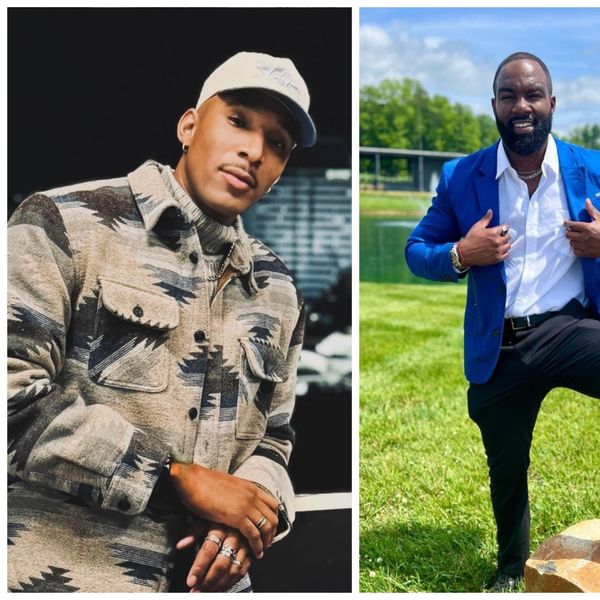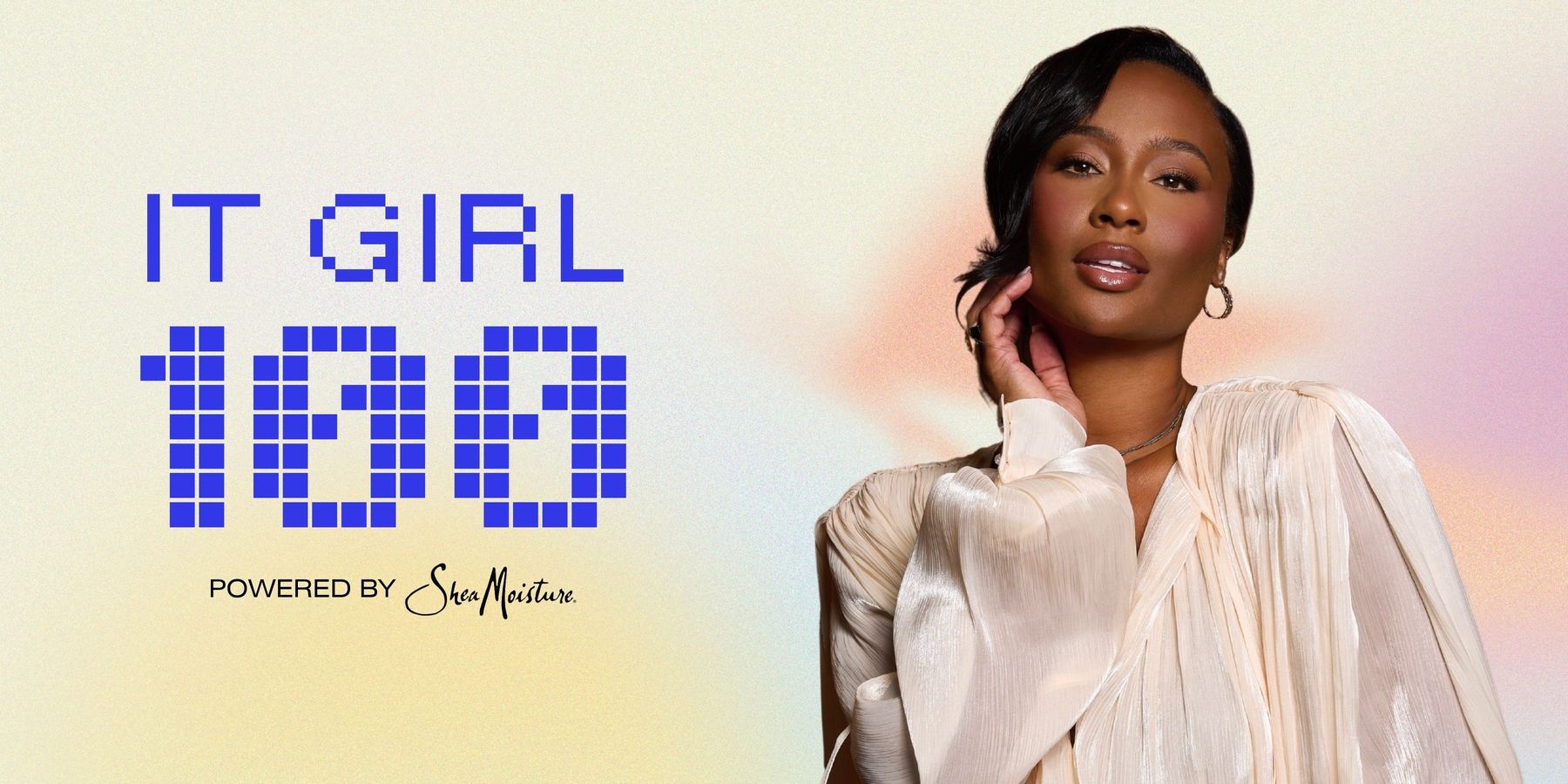
“Reclaiming my time” isn’t just a catchphrase coined by our beloved ‘Auntie’ Maxine Waters. It is an assertion that Black Americans have been striving to obtain for centuries. Pillaged and plucked from our Motherland, stripped of our culture, and robbed of our freedom, Black Americans have fought vigorously to not only reclaim our time but to reclaim our identity for centuries.
While the foundation was laid by those who came before us, the world saw an undeniable shift in the early 2020s.
George Floyd, like so many others, paid the ultimate price. As a result of his untimely death, the world reached a tipping point. Black squares standing in solidarity filled our timelines, companies plastered their promises on their websites, and DEI, all of a sudden, became a buzzword. The world was now “woke” from its all-too-complacent slumber.
The Story of Juneteenth Is the Story of Freedom
More than ever before, the nation wanted to hear our stories and right its wrongs. Let’s be clear, not everyone shared these sentiments. Go to any corporate Instagram page and read the comments under any Black-centric, supporting post. The vileness of some keyboard warriors never ceases to amaze me. Nonetheless, historic shifts were made. People like Dr. Opal Lee, the 95-year-old activist who set out to walk from Texas to Washington, D.C. in hopes of gaining support from Congress to officially name Juneteenth a national holiday, finally saw her dreams and hard work manifest into reality.
For the first time since its inception over 150 years ago, Juneteenth became a recognized Federal holiday in June 2021.
Now, more than ever, people are privy to the date etched in history in which all enslaved Black people were set “free” as deemed by the Emancipation Proclamation. This day, when General Gordon Granger rode into Galveston, Texas with his Union soldiers to inform over 250,000 enslaved Black people they were now free, came two and a half years after the actual Emancipation Proclamation, on June 19, 1865.
Despite Black history, Black stories, and Black celebrations like Juneteenth being brought to the forefront, there are still seemingly gaps that need to be bridged between our present and our past. There are stories from our ancestral archives that need to be told and retold, so that our history, all too often diminished by high-rise condos, quaint cafés, and overpriced artisanal shops, may never be forgotten.
This was evident when I first visited Houston and learned about the history and legacy of Freedmen’s Town, a neighborhood built by newly freed Black Americans in the 1800s. This was a community built by hand, brick by brick, where Black businesses boomed and Black families flourished. It was a place where Blacks had freedom of choice and could reclaim their identities that had been stripped through years of slavery and oppression. There were dozens of Freedmen’s Town settlements across the United States, but most notably in Texas. Houston’s Freedmen’s Town is the only remaining freed slave community of its kind in the United States.
Not surprisingly, Texas was the location of the first Juneteenth celebrations. In 1872, Jack Yates and members of his church raised $1,000 to purchase ten acres of land in Houston, known as Emancipation Park. This community cornerstone served as a formal gathering space for Juneteenth celebrations.
While the national spotlight on Juneteenth has grown in recent years for many Black communities, Juneteenth roots run deep in Texas.
To get a better idea of how Texans honor and celebrate Juneteenth in this day and time, their perceived importance of the holiday, and how they define their Blackness, I tapped some locals to get their perspective.
How Black Texans Continue To Celebrate and Preserve Juneteenth
Zion Escobar
Executive Director of the Houston Freedmen's Town Conservancy (HFTC)
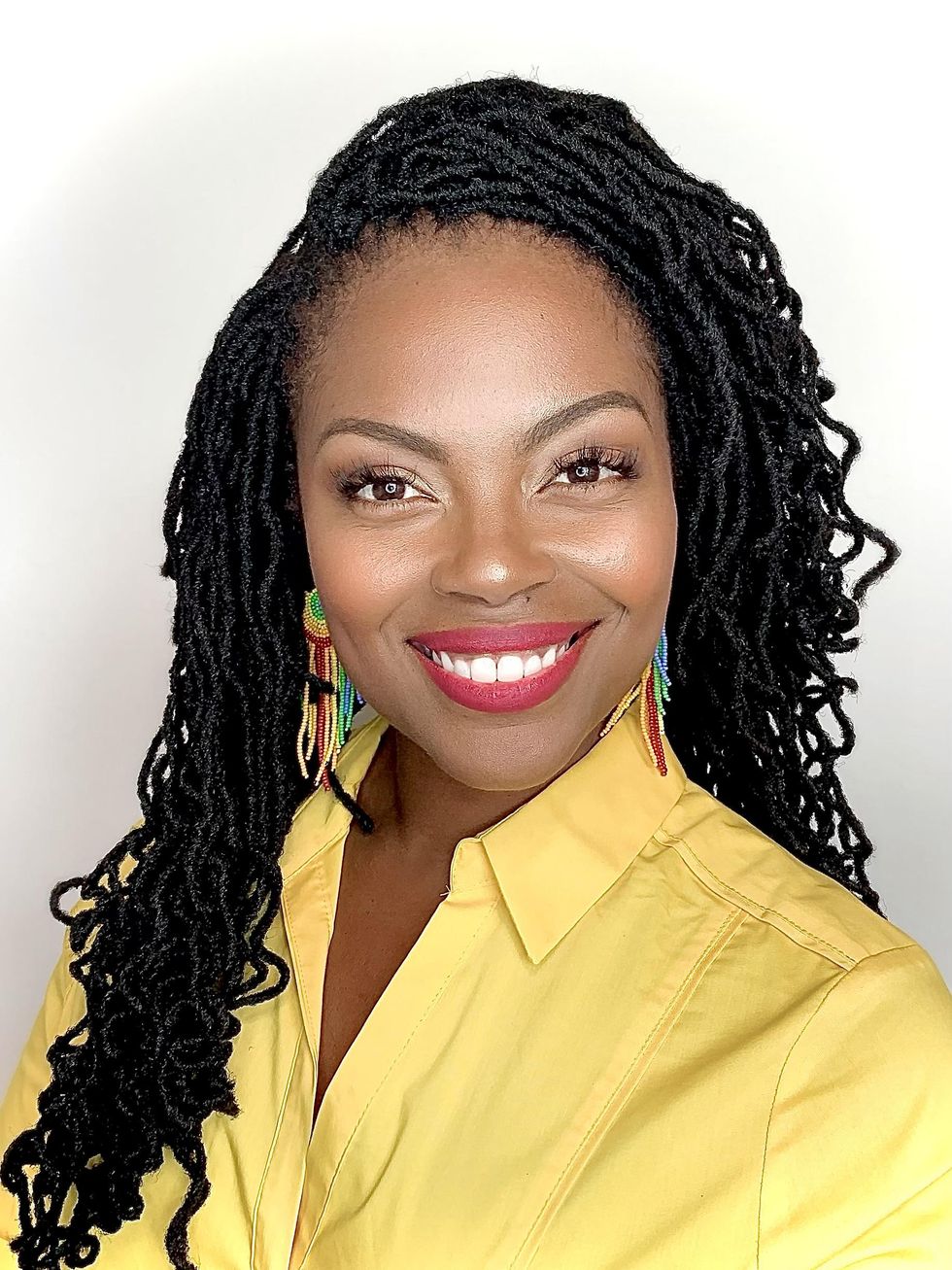
Courtesy of Zion Escobar
I, myself, have older family members who have never heard of Juneteenth, despiteJuneteenth having been around for over 150 years now. Why do you think there are still so many people who don’t know about this celebration?
When I’m kind of pondering that question, I really actually have to reflect on the surface level -- why I think people don’t know about this, and then the deeper level -- why I think they don’t know, right?
And, if I start with the idea that context is everything, I truly believe that once the country is introduced to the story of freedom -- which, a.k.a., the story of Freedmen’s Town, the story of the Houston/Galveston region’s Juneteenth story, and the context that has, to the social justice movement happening throughout the country, to modern-day issues of policing and how all of these things really track back culturally to norms and Jim Crow laws, and post-Reconstruction Era, decisions that were made, in regards to redlining in Black communities and culture erasure -- when people have that context, they’ll realize that a lot of the things that they are out in the streets fighting for, that this is so not new.
That this problem is 150+ years old. I think that more people will start to understand. The example that I would use as a kind of that beacon of hope is that the 1619 Project has set the context for America, for a conversation that’s been around since 1619.
So, I think the answer is that context is everything. People have a tendency to say, “Oh, Juneteenth is about slavery and nobody wants to talk about slavery” and people actually don’t understand that it’s actually the story of freedom. And, it’s the story of what we did, what Black excellence looks like before all these systems of oppression really took hold and were established as a system.
As the Director of Houston’s Freedmen’s Town Conservancy have you seen an evolution in the way that Juneteenth has been celebrated in Houston? How so?
As the director of the Houston Freedmen’s Town Conservancy, I have seen a substantial shift in how Juneteenth is being celebrated in Houston. Case in point, we’ve been free for over 150 years now, and for the first time ever, the grassroots, the foundational non-profit organizations’ leadership in Houston have come together to collaborate on a city-wide Juneteenth experience; meaning, we are not just having a parade that the city gets to come to.
As Black organizations, we are working with each other to uplift, co-program, co-fund, co-market and communicate what this is about, and to show unity in a way that I think people need to see around the world -- that we are all on board with this story and we understand that this needs to come into the American consciousness in a very real and solid way and we are showing up to do the work and we understand the assignment.
[In] previous years, I can’t say that there was such a cohesive consciousness of understanding, and the social justice movement has awakened that vigor, that thing, within everyone to say, ”We need to get it together and make sure that the story is clear and that the context is clear”; because people are celebrating Juneteenth in far reaches of the globe and they don’t have the context. Which is how you get Juneteenthice cream and Juneteenth Vaseline.
"It’s too important to the fabric of Houston’s history, to America’s history, to the history of the slaves that came and laid the foundation for what we know as Houston today that all of America is celebrating -- the wonderful Black culture and music and expressions that have come from Houston. People need to understand the context."
So, we are ready to do that work, because we are not going to see the Cinco de Mayo of Juneteenth, where people say it’s tacos and beer and no one actually knows the true history. It’s too important to the fabric of Houston’s history, to America’s history, to the history of the slaves that came and laid the foundation for what we know as Houston today that all of America is celebrating -- the wonderful Black culture and music and expressions that have come from Houston. People need to understand the context. So, it’s evolved because it is time and we’re ready and I think the consciousness of the collective community is ready. And so, I’m excited to see what we do and I’m excited to continue this inaugural effort in collaboration with everyone.
Finish this sentence: My Black is ________.
Resilient.
Lauren Greer
Principal
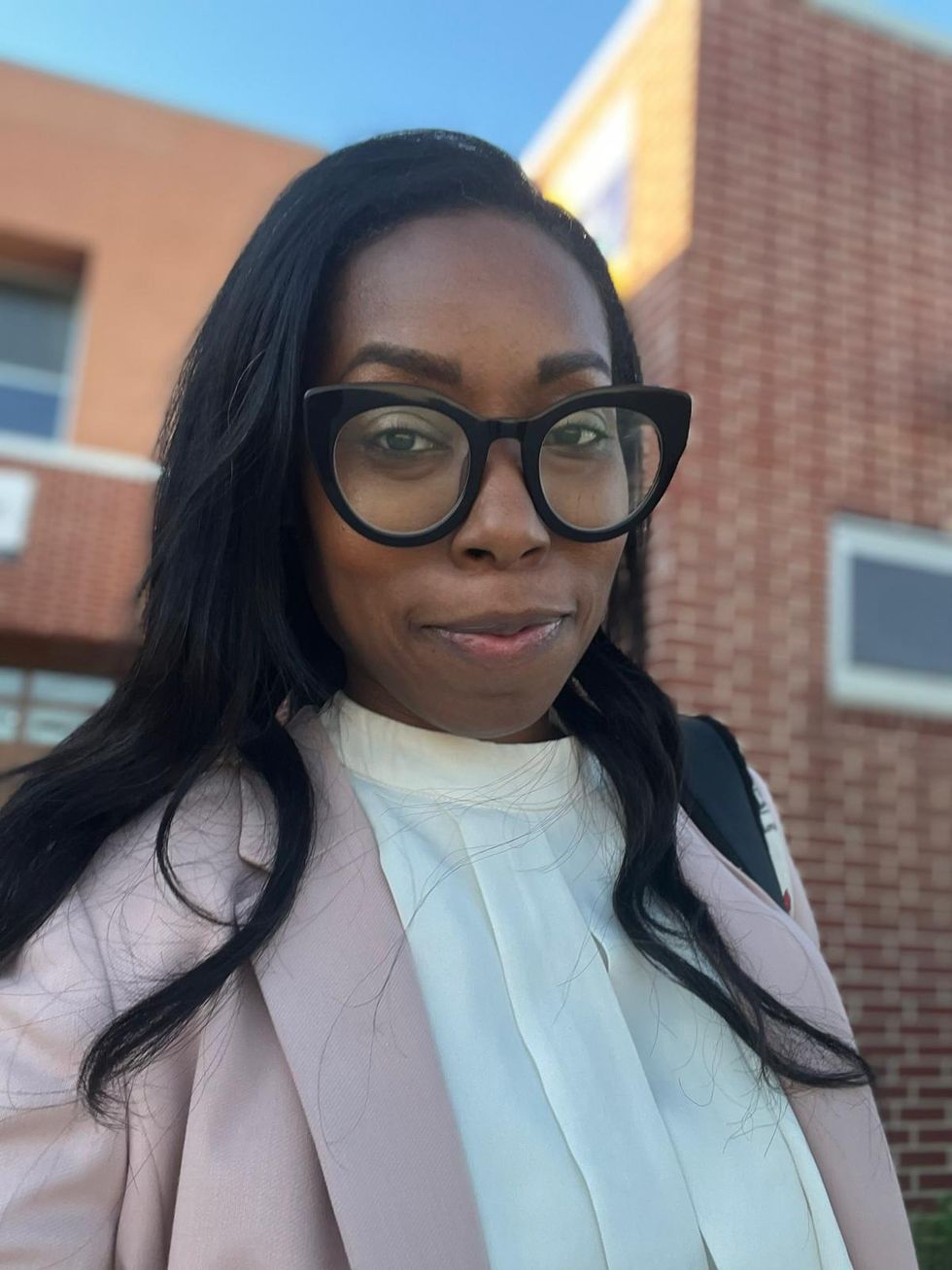
Courtesy of Lauren Greer
Black history is American history. As an educator, how are you seeing Juneteenth being taught in school systems, if at all?
So, that’s interesting just because as an educator, just in light of all the things that have happened recently, there’s some conversations about critical race theory and things of that nature, and because I am in an urban school district, there have been lots of initiatives just around all things cultural diversity and things of that nature. I will say though, as far as just teaching Juneteenth in and of itself, I still haven’t seen that in the classrooms. However, I’m also in an elementary school setting as well. So, it looks a little bit different than what it looks like say in middle school or high school or something like that.
This is the first year, though, where they have the actual holiday on the school calendar. So, my kiddos are off on June 20, that Monday. This will be the first time ever that that’s happened. There are lots of schools in our district. We have different calendars that are already on summer break, but my babies are not on summer break yet. So, we will actually experience the national holiday for Juneteenth while we are still in school. So, while there are initiatives for cultural diversity, Juneteenth still is not a primary focus, as of yet.
As a Texan, has Juneteenth always been something that was celebrated by you and your family? Please explain.
Yes. A lot of the things that I learned, like all things Black history and Black culture, things like that I actually learned at church. Because, the neighborhood I grew up in was a predominantly Caucasian neighborhood, but my church was always Black American. So, from Black history plays, to Juneteenth, to picnics in the park, to the parades that come with it, all of that has always been a part of my upbringing. So, it was not uncommon to literally go to the neighborhood park for all of these things -- for picnics, and just, you know, games, and things of that nature.
Learning all the history that comes with all that was just an embedded part of what I learned in church all the time. And, then just my mom, she just wanted to make sure that we knew our history and so literally I grew up hearing about this all the time in my household, on Sundays or Wednesdays, Vacation Bible Schools, all of those things is the space that I really learned all of the things Black history and Black culture.
How do you celebrate and honor Juneteenth now?
All things Blackity Black Black Black to be completely honest. Usually, getting with friends, picnics, hanging out in the backyard, just reminiscing on history. But, we kind of live it every single day. So, now that there’s a national holiday for it, so to speak, that doesn’t change how we’ve always felt about it, it doesn’t change how we always felt about our culture. It’s given us a space to embrace it a little bit more. Just because of all the things that have happened in our nation in the last few years it’s kind of really drawn light to some things. So, it causes us to be more aware of our culture and also more proud of our culture and who we are as well.
And, so, we take those opportunities on a daily basis to kind of reminisce, but on that day we like to get together and kind of hang out and chill together as well. So, that will probably likely happen again this year. We will all probably get together at somebody’s house just to be around each other.
Finish this sentence: My Black is __________.
When I thought about that question, the cliche answer is 'beautiful.' But, then, as I was thinking about it again this morning -- my Black is needed. I really believe that all of us have been given an assignment on the earth. And I really believe that there’s something that I bring to the table that someone else doesn’t bring, and there’s something that someone else brings to the table that I don’t bring. So, I feel like it is so needed. There has been a target out for our culture for so long, and I feel like we cannot allow society to keep subtracting from our culture.
"There are people that need us to stand in the gap. There are lessons that need to be learned from each and every last one of us. And there is wisdom that needs to be poured into the land. And, each one of us has a responsibility to do that."
Whether it be through entertainment, whether it be through politics, whether it be through education we can’t allow that because we are needed. There are people that need us to stand in the gap. There are lessons that need to be learned from each and every last one of us. And there is wisdom that needs to be poured into the land. And, each one of us has a responsibility to do that. Lauren has a responsibility to do that too, in all of Blackness and all of her educated-ness. The world needs that, and so my Black is needed.
Ebony Parker
Residential Loan Officer
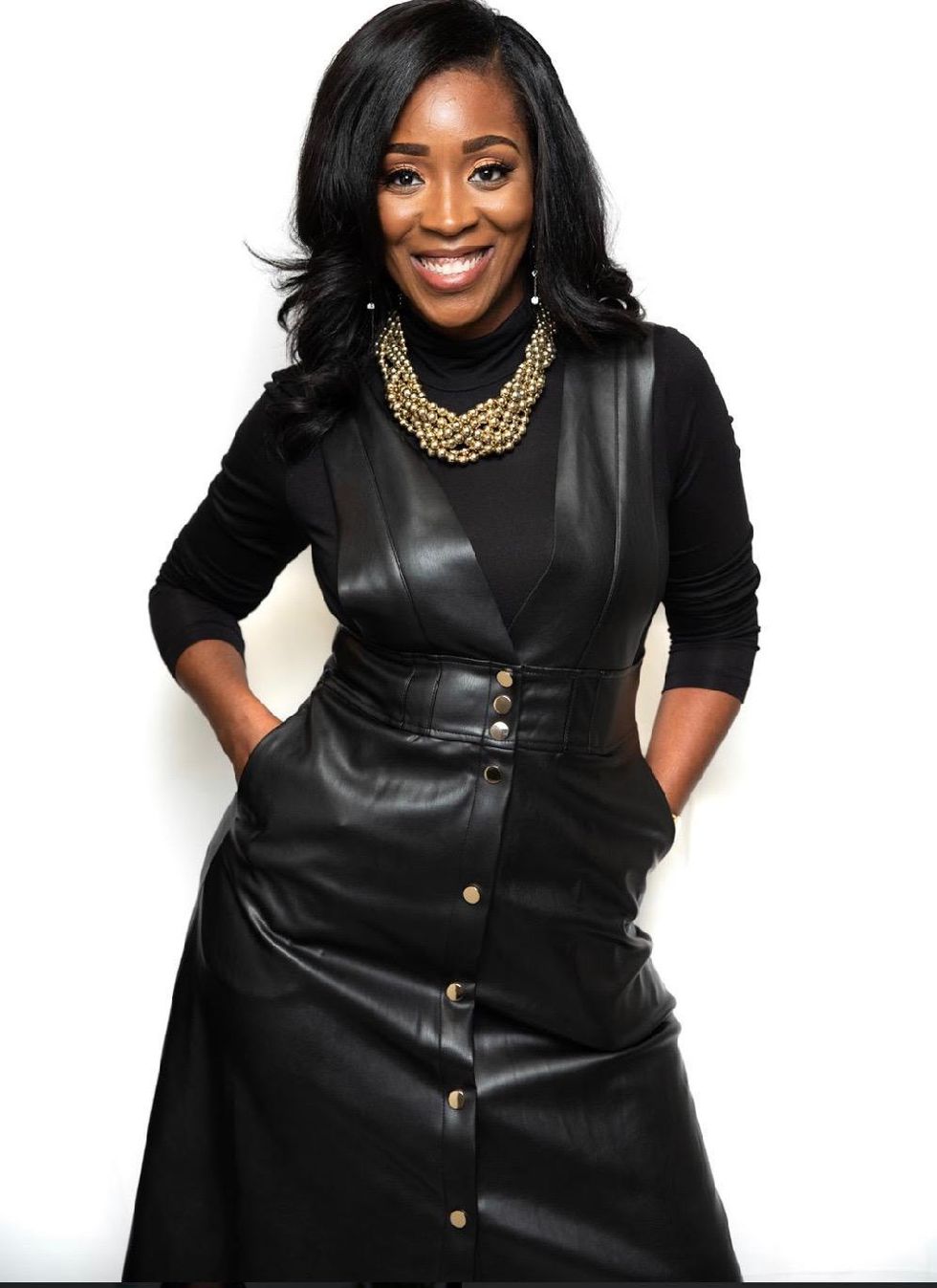
Courtesy of Ebony Parker
What does Juneteenth mean to you?
Juneteenth to me is a representation of perseverance and displays our ability to make lemonade out of lemons at any time. It is us, as a people, continuing to get the leftovers but making them appear as a five-course meal. Juneteenth is the beginning of laying the foundation for our future as the freedom finally granted was the work of our ancestors, but the starting point for us to be able to accomplish the many things we have accomplished. Without the notification of freedom, we would still be sitting on the sidelines, unfortunately. Instead, we are now the trendsetters that everyone is continuously trying to duplicate, unsuccessfully.
As a born and raised Texan, has Juneteenth always been something that was celebrated by you and your family? Please explain.
Unfortunately, Juneteenth wasn’t always celebrated for me. The school system, especially in Texas, has always taught a watered-down and quite often inaccurate version of history, typically leaving out any representation of Black people outside the role of slaves (which unfortunately the textbooks now also consider us as “workers” instead as that narrative makes them appear innocent versus revealing the genocide and cruel things done to my ancestors and even more unfortunate are the things that are still occurring daily). My mother, too, was uneducated on the significance of the day and unable to pass down the knowledge.
"Juneteenth is the beginning of laying the foundation for our future as the freedom finally granted was the work of our ancestors, but the starting point for us to be able to accomplish the many things we have accomplished."
Therefore, I began educating myself on Black culture in college and embraced Juneteenth while finding less of a desire to celebrate July 4 as it along with other “federal holidays” wasn’t an inclusive holiday for those of us that didn’t meet the “standard."
How do you celebrate and honor Juneteenth now?
I like to do all things Black at an exponential level. I ensure that I don’t allow myself to drift towards code-switching. I spend time with my loved ones being unapologetically me. I ensure to be intentional in educating my children and peers. But, more importantly, I celebrate the day by setting a new goal to crush that will further my family, community, and culture.
Finish this sentence: My Black is __________.
My Black is simply Ebony! It is beautiful, intelligent, excellence, confident, sassy, trendsetting, nurturing, loving, and perseverance!
MyKayla Searles-Houston
UTHealth Graduate Student
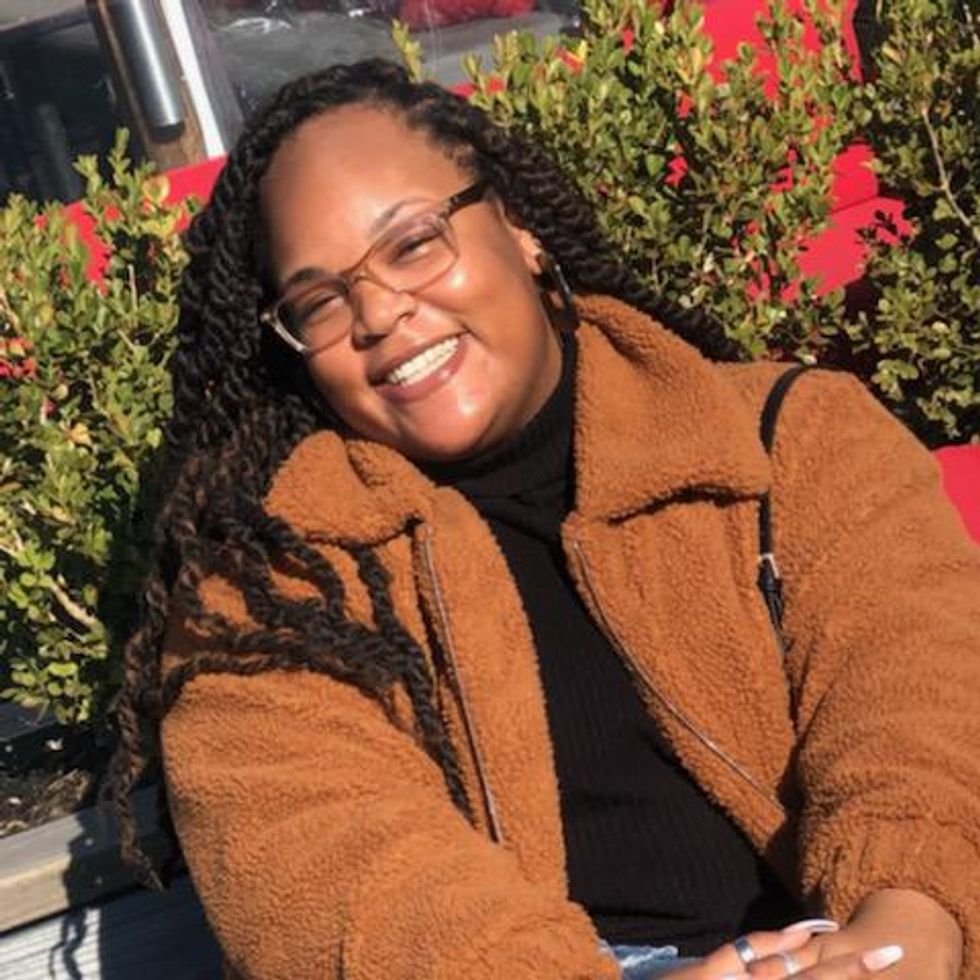
Courtesy of MyKayla Searles-Houston
Why do you think it's important for younger generations to learn about Juneteenth?
I think it is important for the younger generation to learn about Juneteenth because this is our history. This is a part of our culture, especially being Black and from Texas. And, I think it's important to hear from our community and families because oftentimes we are taught history from a narrative or perspective that is not centered in Blackness. So, learning about Juneteenth should be something families talk about with all age groups because one day it'll be the younger people's responsibility to pass down this information.
"I think it is important for the younger generation to learn about Juneteenth because this is our history. This is a part of our culture, especially being Black and from Texas."
How do you celebrate and honor Juneteenth?
I usually celebrate Juneteenth by hanging out with my friends or family! Somebody may barbecue, or we will go to local community festivities which are always nice. There is usually some great food around which is one of the best parts! Honestly, I just love being surrounded by Black people who show love to each other, and being together on Juneteenth is another way for us to express ourselves and have some fun!
Finish this sentence: My Black is __________.
My Black is loving, intentional, and full of care and compassion.
Let’s make things inbox official! Sign up for the xoNecole newsletter for love, wellness, career, and exclusive content delivered straight to your inbox.
Featured image courtesy of Ebony Parker
Originally published on June 14, 2022
Exclusive: Viral It Girl Kayla Nicole Is Reclaiming The Mic—And The Narrative
It’s nice to have a podcast when you’re constantly trending online. One week after setting timelines ablaze on Halloween, Kayla Nicole released an episode of her Dear Media pop culture podcast, The Pre-Game, where she took listeners behind the scenes of her viral costume.
The 34-year-old had been torn between dressing up as Beyoncé or Toni Braxton, she says in the episode. She couldn’t decide which version of Bey she’d be, though. Two days before the holiday, she locked in her choice, filming a short recreation of Braxton’s “He Wasn’t Man Enough for Me” music video that has since garnered nearly 6.5M views on TikTok.
Kayla Nicole says she wore a dress that was once worn by Braxton herself for the Halloween costume. “It’s not a secret Toni is more on the petite side. I’m obsessed with all 5’2” of her,” she tells xoNecole via email. “But I’m 5’10'' and not missing any meals, honey, so to my surprise, when I got the dress and it actually fit, I knew it was destiny.”
The episode was the perfect way for the multihyphenate to take control of her own narrative. By addressing the viral moment on her own platform, she was able to stir the conversation and keep the focus on her adoration for Braxton, an artist she says she grew up listening to and who still makes her most-played playlist every year. Elsewhere, she likely would’ve received questions about whether or not the costume was a subliminal aimed at her ex-boyfriend and his pop star fiancée. “I think that people will try to project their own narratives, right?” she said, hinting at this in the episode. “But, for me personally – I think it’s very important to say this in this moment – I’m not in the business of tearing other women down. I’m in the business of celebrating them.”
Kayla Nicole is among xoNecole’s It Girl 100 Class of 2025, powered by SheaMoisture, recognized in the Viral Voices category for her work in media and the trends she sets on our timelines, all while prioritizing her own mental and physical health. As she puts it: “Yes, I’m curating conversations on my podcast The Pre-Game, and cultivating community with my wellness brand Tribe Therepē.”
Despite being the frequent topic of conversation online, Kayla Nicole says she’s learning to take advantage of her growing social media platform without becoming consumed by it. “I refuse to let the internet consume me. It’s supposed to be a resource and tool for connection, so if it becomes anything beyond that I will log out,” she says.
On The Pre-Game, which launched earlier this year, she has positioned herself as listeners “homegirl.” “There’s definitely a delicate dance between being genuine and oversharing, and I’ve had to learn that the hard way. Now I share from a place of reflection, not reaction,” she says. “If it can help someone feel seen or less alone, I’ll talk about it within reason. But I’ve certainly learned to protect parts of my life that I cherish most. I share what serves connection but doesn’t cost me peace.
"I refuse to let the internet consume me. It’s supposed to be a resource and tool for connection, so if it becomes anything beyond that I will log out."

Credit: Malcolm Roberson
Throughout each episode, she sips a cocktail and addresses trending topics (even when they involve herself). It’s a platform the Pepperdine University alumnus has been preparing to have since she graduated with a degree in broadcast journalism, with a concentration in political science.
“I just knew I was going to end up on a local news network at the head anchor table, breaking high speed chases, and tossing it to the weather girl,” she says. Instead, she ended up working as an assistant at TMZ before covering sports as a freelance reporter. (She’s said she didn’t work for ESPN, despite previous reports saying otherwise.) The Pre-Game combines her love for pop culture and sports in a way that once felt inaccessible to her in traditional media.
She’s not just a podcaster, though. When she’s not behind the mic, taking acting classes or making her New York Fashion Week debut, Kayla Nicole is also busy elevating her wellness brand Tribe Therepē, where she shares her workouts and the workout equipment that helps her look chic while staying fit. She says the brand will add apparel to its line up in early 2026.
“Tribe Therepē has evolved into exactly what I have always envisioned. A community of women who care about being fit not just for the aesthetic, but for their mental and emotional well-being too. It’s grounded. It’s feminine. It’s strong,” she says. “And honestly, it's a reflection of where I am in my life right now. I feel so damn good - mentally, emotionally, and physically. And I am grateful to be in a space where I can pour that love and light back into the community that continues to pour into me.”
Tap into the full It Girl 100 Class of 2025 and meet all the women changing game this year and beyond. See the full list here.
Featured image by Malcolm Roberson
More Than Gratitude: 7 Signs You're Struggling With Contentment In Your Life
If Thanksgiving happens to be your favorite holiday — or you just happen to be a longstanding participant of it — then there is one tradition that you are probably familiar with. Usually, before everyone eats, each individual expresses at least one thing that they are grateful for. I actually think that is one of the best things about the holiday because it reminds people to slow down and really reflect on how to be in the moment and think about the blessings that they have. And that, my friend, is what gets folks into the mindset of knowing how to be…content — even if it’s just for a brief moment.
Contentment. By definition, it’s the state of not only being “satisfied with what one is or has” but also “not wanting more or anything else.” And you know what? Although it might not be a popular aspiration of many, it is a sign of spiritual maturity on certain levels. After all, it is the Apostle Paul who once said, “Not that I speak in regard to need, for I have learned in whatever state I am, to be content…” (Philippians 4:19 — NKJV).
Being content is about not complaining. Being content is about learning to be comfortable in your present circumstances. Being content is about choosing to find joy and fulfillment, on some level, and in some way, on a daily basis.
Personally, I dig all of this so much because when you have mastered true inner contentment, it creates stability, self-awareness, and a type of resilience that makes you…shoot, powerful beyond measure, if you ask me. Because when someone knows how to “find the good” and “make peace,” regardless of what is going on around them, they truly are unstoppable. Yeah, on so many levels, contentment is the ultimate life hack. It’s something that each and every one of us should aspire to become: completely and genuinely content.
Thanksgiving is basically moments away at this point. In preparation for that time of self-reflection, pour yourself a glass of wine, turn on some soft music, sit on your coach, and then ask yourself, “Am I content?” If you’re not sure (or you need the definition unpacked for you just a bit more), here are seven signs that you may not be…and yet, there is no time like the present to do something about it.
1. You’re Super Impatient
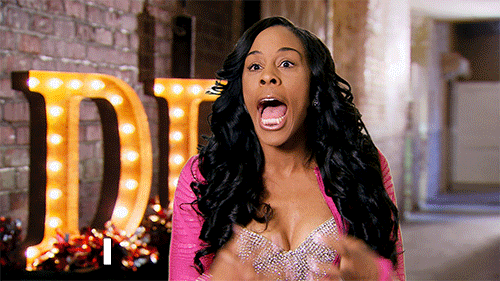 Giphy
GiphyHonestly, putting another Scripture right here could be all that is needed in order to bring this point to a swift and abrupt end. Which one? I Corinthians 13, the Love Chapter, starts off with “Love is patient” (I Corinthians 13:4). Yeah, if you want to know if you love yourself and love yourself well, how patient are you…including with yourself? Throughout the years, I have shared one of my favorite definitions of "patient" in several different articles: “bearing provocation, annoyance, misfortune, delay, hardship, pain, etc., with fortitude and calm and without complaint, anger, or the like.” For me, it’s a blaring reminder that mastering patience isn’t just about waiting (more on that in a sec); it’s about waiting with grace.
Content people can do this because, on some level, they know how to apply the John Piper quote, "God is always doing 10,000 things in your life, and you may be aware of three of them." Another way of looking at this is people who can wait well — without complaining or getting annoyed by delays or challenges in the meantime — get that in order for things to truly come together, there are lots of moving parts…some that they don’t even know about. And so, if they want the best outcome, yes, waiting well is oftentimes not just involved; it is required.
Impatient people don’t get any of this. That’s why they are so stressed out all of the time.
2. You’re Worried About Things You Can’t Control
 Giphy
GiphyThis. Past. Election. Chile. And then the cabinet that that man is putting together as we speak? I don’t even want to get my blood pressure up, expounding on it. Let me just pivot by adding one more Scripture — because it is beyond fitting: “Therefore do not worry about tomorrow, for tomorrow will worry about its own things. Sufficient for the day is its own trouble.” (Matthew 6:34 — NKJV)
Although worrying is something that pretty much everyone does at one point or another, one of my favorite quotes on it is by an American humorist by the name of Erma Bombeck: “Worry is like a rocking chair: it gives you something to do but never gets you anywhere.” And really, when you stop to really think about worrying, isn’t that the truth? For one thing, all worrying does, by definition, is cause you to torment yourself by focusing on things that aren’t even going to happen (somewhere between 85-90 percent of the time, in fact; there is actually a science on that) or trying to control things that are beyond your control.
If being a worry wart is your internal struggle, my advice would be to look at life this way: If you’re worried that you’re about to get written up for getting to work late again, leave your house earlier — you can control that. On the other hand, if you’re worried that you’re going to get laid off before the holiday season ends, so long as you’ve been doing your best (which is also something that you can control), please put your energy elsewhere because that is something that you can’t control.
And I promise that when you choose to be calm and confident over worrying yourself to death, that can help you to manage what you can’t control so much easier. Oh, and your health will thank you, too, because worry is attached to things like insomnia, muscle tension, headaches, overeating, and drinking too much. All this over things that probably won’t happen in the first place? Yeah, sis…(choose to) relax.
And by choosing to chill out, there is some contentment that follows because you will see the good as much as, if not more than, the potential bad. Trust me.
3. The Past and/or Future Consume You
 Giphy
GiphyOn the heels of the Scripture that I just provided for the previous point, it also applies to this one. You know, back when I was doing some intentional research on forgiveness, I always appreciated the insight of author Gary Zukav: “Forgiveness is accepting that the past cannot change.” While this doesn’t mean that you shouldn’t hold people accountable for what they have done, it does help you to be compassionate with those who are truly sorry (check out “Heads Up: It's NOT An Apology If An Amend Isn't Made”) because, no matter what has transpired between you and them, one thing they can’t do is go back into a time machine and change it.
And you know what? When it comes to the mistakes — or, let’s be real, sometimes they are conscious poor decisions — you have made, you can’t either. So, why let their misdeeds or your own consume you to the point of internally destroying you?
Then there’s the future. What if you get robbed? What if your mom gets cancer? What if your husband files for divorce? Girl, if you are caught up in the future that hasn’t even happened yet, you are definitely gonna drive yourself up the wall! And this is why so many mental health experts and platforms are all about encouraging individuals to live in the moment. You can do this by meditating, taking breaks from social media (and the news), journaling, doing things that you enjoy (instead of waiting to put them off), and resting.
Listen, one of the best things about choosing to only focus on the here and now is you can find little things about it to be content with — and that helps you to be/become more content overall.
4. You Always Think About Wanting More
 Giphy
GiphyAlthough it certainly wasn’t my plan for this piece to be so Scripture-heavy, I’ve got to flow with what immediately comes to mind and, for this point, the verse, “So are the ways of everyone who is greedy for gain; It takes away the life of its owners” (Proverbs 1:19 — NKJV) is it. And just what does it mean to be greedy? A greedy individual isn’t just low-key obsessed with getting and having more — please catch it — they are also quite EAGER.
Eager folks also tend to be impatient. Eager folks are perceived by others as being very intense (and not in a good way). More times than not, eager folks haven’t really mastered how to take a moment to appreciate what they do have because all they care about is what’s next. And when you’re in a state of that kind of, well, anxiety…how could it not affect your quality of life? I mean, really.
And what if you read all of that and said, “I’m not greedy; I’m just ambitious” — listen, there is nothing wrong with having goals and wanting to obtain them. However, an ambitious individual knows how to find balance. If they get a promotion, they will schedule a vacation to celebrate it. If they just got a new car, they are not in a rush to get a new house until they can financially afford it. If they were just proposed to with a really nice ring, they aren’t hounding their new fiancé about setting a date within the next two weeks.
People who always want more, without taking the time to enjoy what they already have, are never going to be content. Why? Because there is always something else that you can want…even if you don’t need it or it really isn’t the time for it. Meanwhile, content people get that it’s a good thing to not go after everything all of the time; that it’s far wiser to embrace what is already before them — because some folks don’t even have…that.
5. You Compare Yourself to Others
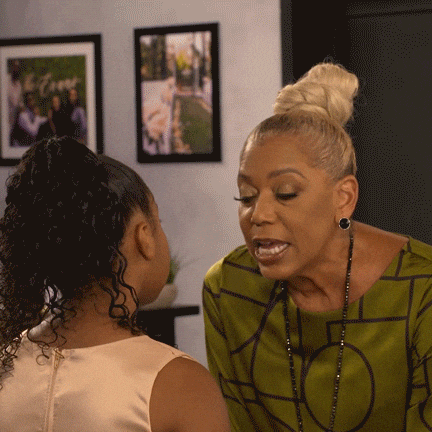 Giphy
GiphySomething that I actually get asked fairly often is, do I feel “some type of way” that I do so much work in the realm of marriage when I’ve never been married myself. The short answer is “absolutely not” because I know that I could’ve been married, a few times over, at this point; however, I am just as intentional about not wanting to be divorced as I am about being in a healthy marriage, not just “a marriage.”
I’m grateful to be in that head and heart space too; otherwise, I would be out here comparing myself to other people — and there is nothing good, healthy, wise, profitable, or beneficial about doing that. In fact, science isn’t a fan of playing the “keeping up with the Joneses” game, either.
According to science, that can ultimately do things like lower your self-esteem, cause you to only see the bad/negative things in your world (in comparison to other people), and it can jack up your perception of what’s really going on with other people. For instance, if you’re 33 and comparing yourself to your friends who are already married and parents, you might want to talk to them about what their day-to-day, beyond their IG posts, is like.
Because while prayerfully, their life is filled with many blessings, if they are being totally honest with you, they will also share that you’ve got some “pros” to your life too (honey, there are some real benefits to being single; check out “If You're Not In Love With Being Single, Ask Yourself These 6 Questions.,” “10 Bona Fide Benefits Of Being Single,” and “10 Words That'll Make You Totally Rethink The Word 'Single'”). Content people get that every season does — because it’s true.
6. You Don’t Verbalize Gratitude Often
 Giphy
GiphyThere is someone in my world who I actually try to avoid as much as possible. It’s not that she’s not smart, and honestly, she’s one of the funniest individuals that I’ve ever known (and I’ve known her for most of my adult life). It’s just that…she is always wanting something, and I find that to make her a very draining individual. Lawd, even as I am typing all of this out, I’m trying to recall a time when I’ve heard her say, “thank you” for something (no joke), let alone express any form of genuine gratitude. She’s just got such a sense of entitlement that whatever she does receive, she thinks she’s owed and what she doesn’t have, she believes that something is wrong if it hasn’t arrived yet. Geeze, what a horrible type of existence.
You don’t have to take my word for it either because there is plenty of data out here to support that people who don’t take the time to be grateful for what they have ended up being unhappy, more stressed out, in more physical pain (yes, literally) and definitely more negative than everyone else — which would explain why people don’t like hanging out with them as much.
So, since this is the time when gratitude is the theme of the season, think about what you are grateful for when it comes to what you’ve accomplished this year, then write it down and post it up somewhere. Then, as far as the individuals, for whom you are grateful for — send them a handwritten note, get them a gift card to their favorite coffee shop, or even just call to tell them.
One of the most beautiful things about being in a state of contentment is it reminds you of a lot of what you already have. It really is enough…for now…in this very moment.
7. Being (and Living) Satisfied Is a Foreign Concept to You
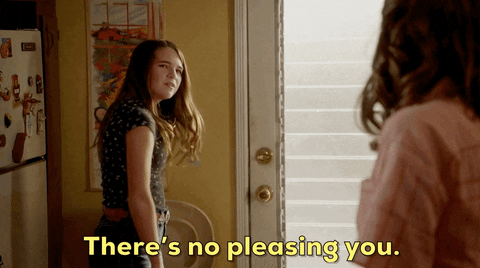 Giphy
Giphy“Tubi movies” really is a complete sentence. LOL. And yes, sometimes, when I’m taking a writing break, I will check out some of the most…I-wouldn’t-normally ones, just to lend my support. In walks Never Satisfied with its own self-explanatory meaning. Y’all, it really is oh so true that there are folks out here dealing with some unpredictable and sometimes even truly dire consequences — and it’s all because they didn’t know how to sit down somewhere and learn how to be satisfied with the people, places, things, and ideas that they already have.
That said, I am indeed a quotes gal, and one of my favorites on the topic of satisfaction is by actor Christopher Reeve: “Success is finding satisfaction in giving a little more than you take,” and although I don’t do what I’m about to do often (because I try to take Matthew 6:1-4 very literally and seriously), I’m going to illustrate what he said about satisfaction by sharing a recent situation.
This past week, a nurse practitioner (I prefer those to doctors) diagnosed me with wrist tendonitis for the first time in my life. If you knew how many keystrokes that I do a day, you’d probably be shocked that it took this long. Anyway, as I was waiting in line to get a prescription, a young Black man was basically freaking out because his insurance was refusing to cover his own meds. According to what he was telling the pharmacist, he always only pays $5; however, this time, they were charging $62, he simply didn’t have it, and the insurance company was not picking up.
As I watched him shaking and sweating while saying that he really needed it today and fretting while talking to his mom on the phone, I offered to cover it — and after going back and forth with him for about three minutes, I did. In my mind, although I didn’t plan on spending about $85 (total) that day, the little inconvenience that it was costing me was nothing in comparison to how much it was going to benefit him — I could tell from how he and his mother reacted (even the pharmacist mouthed “thank you so much”), and that is what made it money well spent.
To help someone who had no way of helping themselves in the moment? That brought me a lot of satisfaction because it’s nice to lighten someone’s load while leaving it to karma to handle it. ALL OF IT.
And that’s why I thought it was best to wrap all of this up with a reminder that being satisfied is being content. And when you can be so satisfied with your life that you want to help others? That is a level of contentment that is truly unmatched because you start looking for ways to bless others simply so that they can feel just as content as you do.
____
Our culture? It really is never satisfied, which explains why a lot of people are so miserable. SMDH. You don’t have to be like the masses, though. This Thanksgiving, please purpose in your mind (and heart) to be(come) more content. It will make you a rare gem that benefits everyone and everything around you.
Including yourself, sis. No doubt about it.
Let’s make things inbox official! Sign up for the xoNecole newsletter for love, wellness, career, and exclusive content delivered straight to your inbox.
Featured image by Shutterstock
Originally published on November 28, 2024



